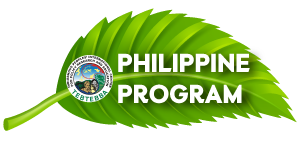
About
The Philippine Program is an initiative within Tebtebba Foundation that directly deals with community strengthening and operationalizing the Indigenous Peoples Sustainable Self-Determined Development (IPSSDD) framework in its pilot areas in the Philippines. It implements action plans of the United Nations Convention on Biological Diversity (CBD) including the conservation of biological diversity, the sustainable use of the components of biological diversity, and the fair and equitable sharing of benefits arising out of the utilization of genetic resources.
While this work is focused in selected pilot sites in the Philippines, lessons, relevant information, and experiences are maximized in the advocacy of Tebtebba at national, regional, and global levels and shared in the knowledge platform of the different networks collaborating with Tebtebba.
The Philippine program was formerly called the Indigenous Peoples and Biodiversity Program (IPBP).
1.0 Strengthen communities within the framework of IPSSDD in pilot areas in the Philippines
This is where Tebtebba does its holistic organizing work where elders, men, women, and youth are mobilized towards strengthening their community through the following:
-
Implement the UNCBD action plans related to protection, conservation, restoration and enhancement of biodiversity and ecosystem services, and contribute to climate change mitigation and adaptation;
-
Capacity-building towards organizational development through the conduct of training sessions on leadership, project management, and financial management that would help imbibe collective leadership and committee system of work, open and free flow of information, and recognize lines of authority and responsibilities.
-
Strengthen customary governance systems and ensuring participation and leadership of indigenous peoples in decision-making processes;
-
Documentation and research of indigenous knowledge systems and practices, appropriate technologies, governance, and food systems and support community effort toward the definition of their own community development plan;
-
Facilitate multi-stakeholder collaboration of indigenous communities or organizations with government bodies and agencies, NGOs, and other institutions;
-
Facilitate the setting up or strengthening of social enterprises at the community level and ensuring sound financial management and accountability; and
-
Help in the empowerment processes of indigenous women and youth.
2.0 Contribute to Tebtebba’s local, national, regional, and global advocacy work. The results of work in the pilot sites shall be maximized in local to international advocacy work with, for and by indigenous peoples.
-
Enhance peoples’ capacities and facilitate the setting up of community-based monitoring and information systems (CBMIS). The CBMIS is a process of enabling communities to further systematize, manage, and control their data/information and record results of observations of matters significant to them;
-
Help in analyzing the impacts of policies and programs on indigenous peoples and engage in influencing the implementation of these policies and programs;
-
Help strengthen the Ugnayang Pambansa para sa Katutubong Kaalaman at Talino (UPAKAT) network in knowing conventions and policies on biodiversity and climate change, assert their rights through national and local dialogues, support them in empowering and consolidating their organizations and communities, and in seeking justice when their rights are violated; and
-
Active collaboration with the International Indigenous Forum on Biodiversity (IIFB) and the International Indigenous Forum on Biodiversity and Ecosystem Services (IIFBES) in the UNCBD and the Intergovernmental Science-Policy Platform on Biodiversity and Ecosystem Services (IPBES) processes.
